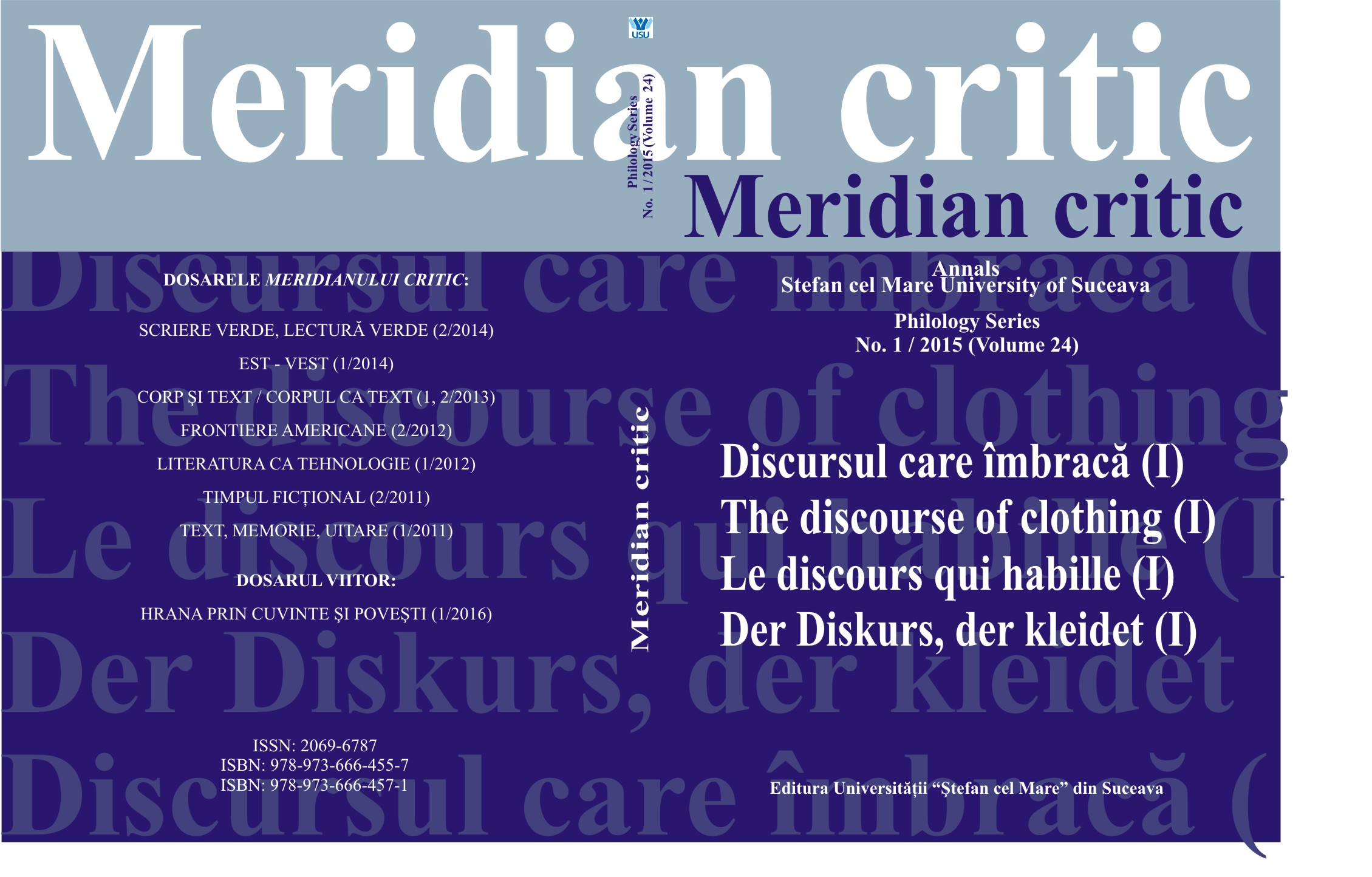Identité et costume traditionnel
dans la prose maghrébine du XXe siècle
Identity and folk costume in the Maghrebian fiction of the XXth century
Author(s): Elena-Brândușa SteiciucSubject(s): Language and Literature Studies
Published by: UNIVERSITATEA »ȘTEFAN CEL MARE« SUCEAVA
Keywords: Maghreb; colonizer; identity; outfit; Arab; Berberian;
Summary/Abstract: Maghrebian identity is one of the major concerns of authors such as Mouloud Mammeri, Assia Djebar, Malika Mokeddem, whose writings depict the North-Western part of Africa, where Arab, Berberian and French cultures create a unique mixture. In their novels, many of the French speaking authors coming from this space bring forth various aspects of the “Maghrebian soul”, in an effort to show real life in villages and homes, to create characters that stand for the whole community. One of the most important parts of Maghrebian identity is the traditional outfit, often seen by the Western civilization as simply “picturesque”, as the whole North-African culture.This article attempts to show the connection between identity and traditional outfits in some important works belonging to the first wave of this literature (La Colline oubliée, Les alouettes naïves, Les Hommes qui marchent), but also in more recent ones, in which authors tend to act like ethnologists, depicting many details of spiritual and material culture. Thus, the traditional man’s or woman’s costume becomes a part of the character’s identity and its presence/absence most often shows the influence of the colonizer on the colonized people’s identity or the hybrid identity of the characters, as a result of the acculturation process.
Journal: Meridian critic
- Issue Year: XXIV/2015
- Issue No: 1
- Page Range: 35-44
- Page Count: 10
- Language: French

